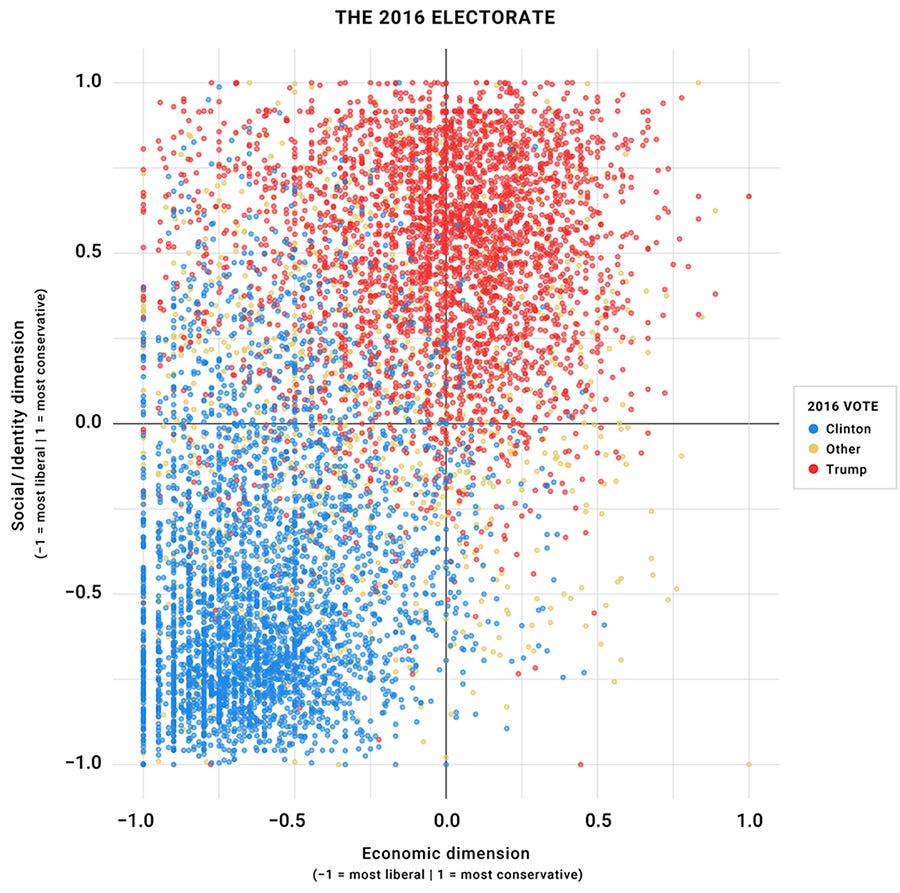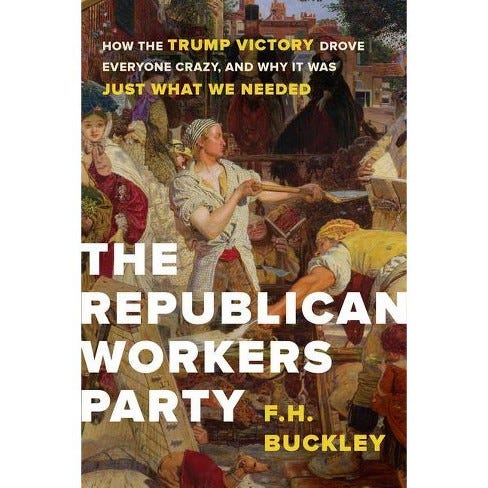Progressive conservatism sounds like an oxymoron – a bit like an exact estimate, jumbo shrimp, or a dull roar. Frank H. Buckley, however, argues that progressive conservatism is not only a meaningful political label but that it has a rich history in America. A former speechwriter for President Trump, Buckley believes that Trump voters will still determine the future of the Republican Party, even though Trump has disgraced himself.
Voter surveys show a dominant centrism on the right that Buckley believes lends itself to progressivism – properly defined.
The party of Abraham Lincoln, Teddy Roosevelt, Dwight Eisenhower, and Ronald Reagan has always been progressive, he says.
Frank has been a law professor at George Mason University since 1989 and is a keen observer of American politics. Although Canadian by birth, he is as American and patriotic in the genuine sense of the word as anyone.
He has also written in recent memory, American Secession, The Republican Workers Party, The Republic of Virtue, and The Once and Future King – all of which you can find in my show archives at BobZadek.com.
In this episode, we summarize many of the themes from his previous books in a one-hour conversation about the future of American Politics.
We will see whether the two seemingly contradictory philosophies of progressivism and conservatism can, in fact, co-exist, and Frank will argue – using many examples – that this blend of labels is what characterizes the very best of the Republican Party, past, present, and future.
Condensed Transcript/Summary
The term “progressive” has been adopted by the left, but today’s leftist progressives are actually anti-moderns, says Buckley.
“They want to turn politics into a battle of race against race – ethnic group against ethnic group. There’s nothing modern about that. That's premodern. That's Neanderthal, right? The whole point of America was to get away from all of that.”
East vs. West
Resolving the seeming contradiction in terms requires a different view of history, he argues:
“We tend to see American history in terms of things like North versus South, but that has played itself out. I'd invite people – and libertarians, particularly – to think of American history in terms of East versus West.”
Buckley cites Frederick Jackson Turner, whose Frontier Thesis posited that the availability of unsettled land throughout much of American history was the most important factor determining our national development.
While the East Coast retained the Old World flavors of aristocracy and inequality, the wide-open Wild West offered opportunity, meritocracy, democracy, and equality.
“Turner should be a hero to libertarians, as well as to progressives, because he's the guy who invented jurisdictional competition – the idea that states compete for people. The West was the home of Republican virtue, and the East of corruption.”
Today, California is losing citizens because of its corruption and tax-and-spend policies, while much of the East (including Europe) has learned from its mistakes and reformed in many ways to be more like the West.
A Uniquely American Libertarianism
Buckley believes that economic mobility is the key to national revival – a theme that has recurred in several of his recent books, including The Republican Workers Party.
In that book, Buckley applauded Trumpism without fully endorsing the man himself – who he frames as a Hegelian figure, selected by history to lead America into a renewed civic nationalism. He is careful to distinguish this nationalism from populism, and notes that American nationalism is inherently liberal. It welcomes foreigners to our shores, for example. Immigration, it could be said, is as American as pizza – and this is not incompatible with our unique brand of nationalism. American nationalism also embraces economic opportunity and the freedom to live your life as you see fit. The economic data from the last several decades reveals that this ideal is slipping away.
“What I want to do is try to talk about a way of understanding libertarianism, which is authentically American; which isn't derived from a bunch of Austrian economists (bless their hearts) but which is specifically American,” says Buckley.
He cites the introduction of the 17th Amendment – the direct election of Senators – as an example of a “western initiative” that came from progressive libertarianism and the urge toward greater democracy. The Republicans’ 19th-century opposition to corruption and the influence of money in politics is another example of progressive conservatism. Today’s GOP has ceded that issue to the Left, which now controls the conversation about so-called dark money, even as the Democrats are the prime beneficiaries of corrupt lobbying by Big Business. The Republican Party of the 1990s and early 2000s was built on an alliance with business in promoting right-wing economic policies, alongside right-wing social values. Trumpism represented a break from this “fusionism,” but Buckley says that Trump failed to live up to his promises to help the middle class. The turning point, when it all went south, came early – in his inauguration speech:
“I was asked to write an inauguration speech, and before I did that I bought a book of the inauguration speeches of U.S. presidents. If you read that, it would blow you away. Noble speeches by impressive people. I drafted a speech that was Kennedy-esque, in a kind of “let's come together” type of effort.
For the inauguration, I happened to be at the Canadian Embassy and I heard the speech that was written by Steve Bannon and I realized, “This is nuts.” This is anything but what a Dwight Eisenhower would have done. Thereafter, Trump surrounded himself with incompetence in office, and with cronies who catered to his monstrous ego, and to sycophants, and a sleazy group of people – many of whom were distinctly illiberal.”
Progressive Conservatism’s Values
Perhaps the oxymoron of progressive conservatism is best illuminated and resolved with some concrete examples. Buckley favors some relief for students burdened with loan debt, comparing it to bankruptcy – which enables people to take financial risks without the possibility of complete and total ruin.
“I'd like to argue that there's something very American about bankruptcy laws,” he says.
On the subject of income inequality, Buckley is critical of Republicans like Mitt Romney who divide America into “makers vs. takers,” and thinks that the true division is between the government-privileged and those left out of the crony-capitalist gravy train centered in Washington D.C. We can support greater equality in the historically “Western” sense without abandoning the principles of freedom and free markets.
Finally, Buckley is not opposed to a kind of public option for catastrophic health insurance. He says that the great fear of many Americans is ending up bankrupted by a hospital visit for something our health insurance doesn’t cover. He points out that this is supported by a majority of Americans, although it’s probably the least libertarian of his proposals. Why can’t the market provide these catastrophic plans, the libertarian would ask? From a political perspective, appealing to libertarians is generally not a high priority, given that libertarians make up only 3.5% of voters. Buckley also rejects the open immigration policy I’ve promoted over the years, which I invite all my readers to follow here:

















Trumpism After Trump